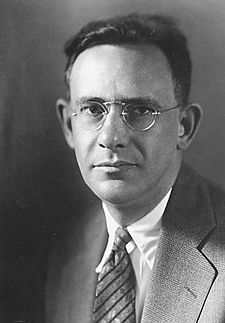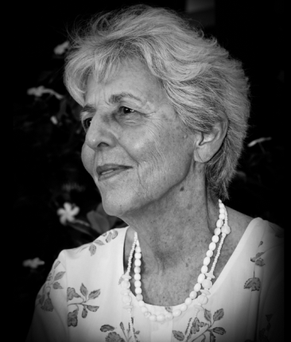Related Research Articles

Edward Sapir was an American anthropologist-linguist, who is widely considered to be one of the most important figures in the development of the discipline of linguistics in the United States.
Dell Hathaway Hymes was a linguist, sociolinguist, anthropologist, and folklorist who established disciplinary foundations for the comparative, ethnographic study of language use. His research focused upon the languages of the Pacific Northwest. He was one of the first to call the fourth subfield of anthropology "linguistic anthropology" instead of "anthropological linguistics". The terminological shift draws attention to the field's grounding in anthropology rather than in what, by that time, had already become an autonomous discipline (linguistics). In 1972 Hymes founded the journal Language in Society and served as its editor for 22 years.

The West Atlantic languages of West Africa are a major subgroup of the Niger–Congo languages.

Alfred Louis Kroeber was an American cultural anthropologist. He received his PhD under Franz Boas at Columbia University in 1901, the first doctorate in anthropology awarded by Columbia. He was also the first professor appointed to the Department of Anthropology at the University of California, Berkeley. He played an integral role in the early days of its Museum of Anthropology, where he served as director from 1909 through 1947. Kroeber provided detailed information about Ishi, the last surviving member of the Yahi people, whom he studied over a period of years. He was the father of the acclaimed novelist, poet, and writer of short stories Ursula K. Le Guin.

The Uto-Aztecan languages are a family of native American languages, consisting of over thirty languages. Uto-Aztecan languages are found almost entirely in the Western United States and Mexico. The name of the language family reflects the common ancestry of the Ute language of Utah and the Nahuan languages of Mexico.

Numic is the northernmost branch of the Uto-Aztecan language family. It includes seven languages spoken by Native American peoples traditionally living in the Great Basin, Colorado River basin, Snake River basin, and southern Great Plains. The word Numic comes from the cognate word in all Numic languages for “person”, which reconstructs to Proto-Numic as. For example, in the three Central Numic languages and the two Western Numic languages it is. In Kawaiisu it is and in Colorado River, and.

The Jola or Diola are an ethnic group found in Senegal, the Gambia, and Guinea-Bissau. Most Jola live in small villages scattered throughout Senegal, especially in the Lower Casamance region. The main dialect of the Jola language, Fogni, is one of the six national languages of Senegal.
Psychological anthropology is an interdisciplinary subfield of anthropology that studies the interaction of cultural and mental processes. This subfield tends to focus on ways in which humans' development and enculturation within a particular cultural group—with its own history, language, practices, and conceptual categories—shape processes of human cognition, emotion, perception, motivation, and mental health. It also examines how the understanding of cognition, emotion, motivation, and similar psychological processes inform or constrain our models of cultural and social processes. Each school within psychological anthropology has its own approach.
Regna Darnell is an American-Canadian anthropologist and professor of Anthropology and First Nations Studies at the University of Western Ontario, where she has founded the First Nations Studies Program.
Charles Leslie Briggs is an anthropologist who works at the University of California, Berkeley, United States. Before working at Berkeley he held a position as Chair of the Ethnic Studies Department and Director of the Center for Iberian and Latin American Studies at University of California, San Diego.
Pliny Earle Goddard was an American linguist and ethnologist noted for his extensive documentation of the languages and cultures of the Athabaskan peoples of western North America. His early research, carried out under the auspices of the University of California, Berkeley, focused on the Hupa and adjacent Athabaskan groups in northwestern California. After moving to New York in 1909 at the invitation of Franz Boas his scope expanded to include the Athabaskans of the Southwest, Canada, and Alaska. During the 1910s and 1920s. as Boas's junior colleague at the American Museum of Natural History and Columbia University, Goddard played a major role in creating the academic infrastructure for American Indian linguistics and anthropology in North America.
Jola, also called Jola-Fonyi and Kujamataak, is a language spoken by 475,000 people in the Casamance region of Senegal, and neighboring countries. Jola-Fonyi is one of several closely related Jola languages spoken in the area.
Richard Bauman is a folklorist and anthropologist, now retired from Indiana University Bloomington. He is Distinguished Professor emeritus of Folklore, of Anthropology, and of Communication and Culture. Before coming to IU in 1985, he was the Director of the Center for Intercultural Studies in Folklore and Ethnomusicology at the University of Texas and a faculty member in the UT Department of Anthropology. Just before retiring from Indiana, he was chair of the IU Department of Folklore and Ethnomusicology, as well as an important member of the Department of Anthropology and the Department of Communication and Culture.

Olga Francesca Linares was a Panamanian–American academic anthropologist and archaeologist, and senior staff scientist (emerita) at the Smithsonian Tropical Research Institute (STRI) in Panama, who supported much of her research throughout her career. She is well known for her work on the cultural ecology of Panama, and more recently in the Casamance region of Southern Senegal. She is also concerned with the social organization of agrarian systems as well as the relationship between "ecology, political economy, migration and the changing dynamics of food production among rural peoples living in tropical regions".
Frances Jane Hassler Hill was an American anthropologist and linguist who worked extensively with Native American languages of the Uto-Aztecan language family and anthropological linguistics of North American communities.
Victor Golla (1939–2021) was a linguist who specialized in the indigenous languages of California and Oregon, especially the Pacific Coast Athabaskan subgroup of the Athabaskan language family and the languages of the region that belong to the Penutian phylum. He was emeritus professor of anthropology at Humboldt State University and lived in Trinidad, California.
Virginia Dominguez is a political and legal anthropologist. She is currently the Edward William and Jane Marr Gutgsell Professor of Anthropology at the University of Illinois at Urbana-Champaign.
Stephen A. Tyler (1932–2020) was an American anthropologist and Herbert S. Autrey Professor Emeritus of Anthropology and Linguistics at Rice University. He is known for his works on cultural anthropology.
Richard "Rick" Feinberg is an American anthropologist, writer, educator, and Emeritus Professor focusing on sociocultural anthropology, specifically on Polynesian societies in the Pacific Islands and Native North America. Feinberg completed his Bachelor of Arts at the University of California, Berkeley, in 1969, going on to obtain his Master of Arts in 1971 and a Doctor of Philosophy degree in 1974, both from the University of Chicago.
References
- ↑ Introducing Edward Sapir. J. David Sapir. Language in Society, Vol. 14, No. 3 (Sep., 1985), pp. 289-297
- ↑ "J. David Sapir - Anthropology News". www.anthropology-news.org. Retrieved 2025-01-16.
- ↑ "Department of Anthropology". Archived from the original on 2013-12-10. Retrieved 2012-09-28.
- ↑ Bridging Gaps: J. David Sapir blends anthropology and photography into a mind-opening Internet experience. By Porscha Chavon Burke
- ↑ "Wrong shelf. | UC Berkeley Library" (PDF). www.lib.berkeley.edu. Retrieved 2025-01-16.